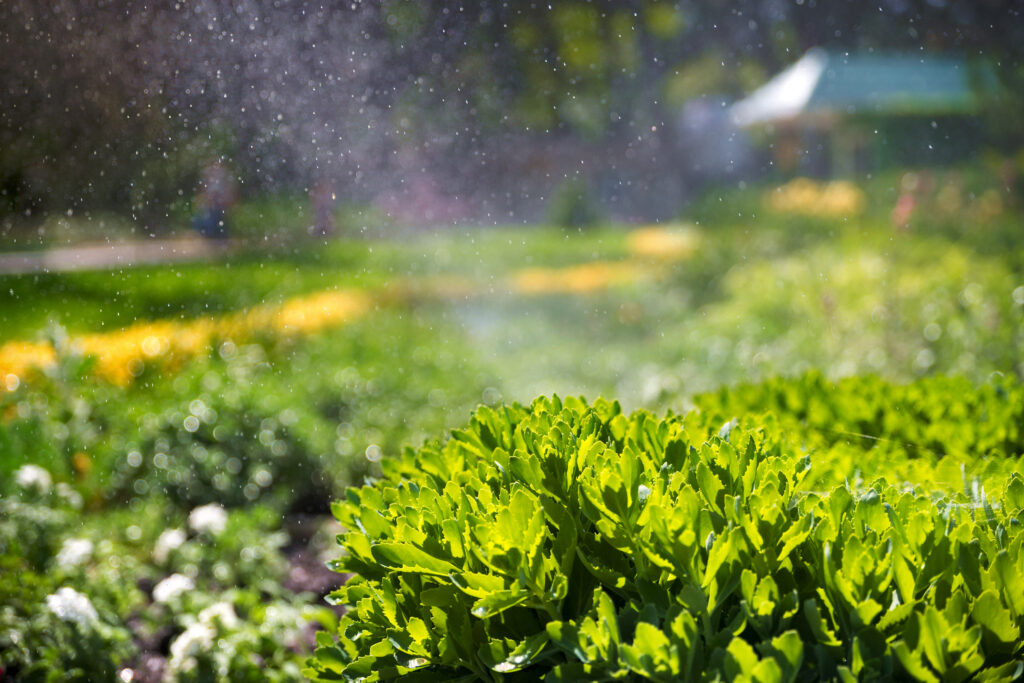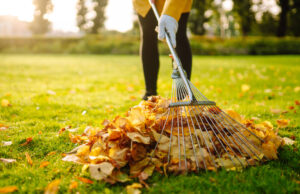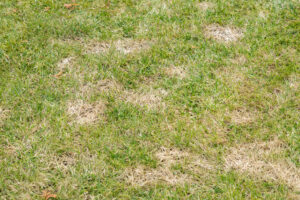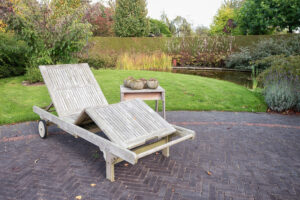Several thousand tons of road salt are applied annually in the state of New Jersey to keep pavements, pathways, and streets safe from snow and ice.
This is usually an important thing to do to ensure safety.
However, the compound has the potential to wreak havoc on your landscape.
In fact, it has been proven to contribute to injury and even death of plants.
Since de-icing agents are quite useful and the local government cannot stop using them any time soon, it is up to us to take the needed steps to protect lawns from de-icing effects.
This article gives tips on how to go about exactly that.

Does Your Grass Get Damaged From The Salt In The Winter?
How It Causes Damage
The first thing we need to analyze here is how the compound finds its way into your lawn. This mainly takes place after the chemical is left behind by splashes from moving vehicles. Once this happens, the element starts to burn the sprouts, leaves, and tiny branches. The destruction starts to happen because tender tissues are exposed and the exposed tender emerging leaves and flower buds wither. The end result is the death of your plants.
The chemical, sodium chloride, also messes up with the soil. It does this by displacing important nutrients. Plants end up absorbing sodium and chlorine rather than key nutrients like phosphorous and potassium. Plants cannot survive under such conditions.
It leads to dehydration because the salt absorbs water, leaving nothing to be absorbed. This later on leads to dehydration, a problem that is otherwise referred to as physiological drought.
Common Symptoms of Damage
There are several signs that you can watch out for in your turf to signify destruction. Some of these include bud deterioration or death, discoloration of needles, delayed bud break, soil crusting, and dead patches. Spot such signs and it could mean that your turf needs some immediate maintenance decision.
Actions to Take to Prevent Damage
Minimize the Use of Salt
Although you might not be able to control the amount of de-icing that the local government uses to clear off roads, you are definitely able to reduce the amount you use yourself.
With this in mind, consider using alternate compounds like potassium chloride, calcium magnesium acetate, and sand to help provide traction without causing any harm. Although some of these elements can be quite expensive, they will help minimize chances of injury. A better technique to go about this is to mix the materials.
Apply Carefully
Since you are trying to protect your lawn, it makes a lot of sense to apply the de-icing agent carefully in a manner that it will not get to your plants. Therefore, the application you do should only be targeted at the roadways and not on your landscaping.
As you do the application, be sure to pay attention to the flow of salt-laden runoff, which happens once the snow melts. You need to apply in such a manner that even this runoff will not get to your landscape.
Create Physical Barriers
You should offer protection by creating physical barriers, which help prevent your plants from being directly sprayed on or being destroyed by runoff. Some ideas that you can use here include wood, plastic, or burlap screens.
Water Frequently
The only best method to minimize chances of damage is to water on a frequent basis. This is due to the fact that it is low effort and cheap. Wait for the ground to thaw and then simply water the area where the snow piles have melted. This works immensely well because it leaches the soil, making clean water available.
Salt is a very crucial component for dealing with snow and ice. However, it does bring with it some side effects. One of the biggest issues is that it destroys landscaping. Some signs that you can look out for include discoloration, wilting and scorched leaves, stunted growth, and dead patches. When you notice such, it might be time to reach out to professional landscapers to see the best way they can assist you.
You should also be proactive and implement strategies like using alternative chemicals, creating physical barriers, watering regularly, and improving soil quality to help prevent such an issue from happening ever again.
If you are looking for professional landscapers in New Jersey, consider reaching out to us. We have years of experience and will without doubt offer an excellent service, as we are dedicated to making your landscaping look fantastic and beautiful.





